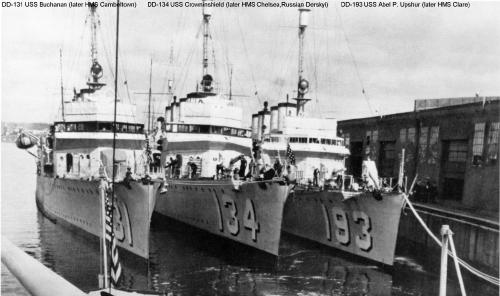A WST Special - By Dr. Lawrence Waldron -

Global - By the time the 1940 Bases for Destroyers agreement1 between the United States and Great Britain was finally enacted in 1941, World War II was in full swing. In this pact (which was actually signed in the previous year) the United States had agreed to supply the U.K. with fifty mothballed destroyers in exchange for land leases throughout Britain’s Atlantic colonies. An increasingly concerned U.S.A. was beginning to wade into the war in earnest. And by the end of 1941, when they were attacked at Pearl Harbor by the Japanese navy, the Americans finally jumped into the global conflict with both feet. A formerly hesitant American population was now calling for blood. Hundreds of American military bases were constructed throughout the Caribbean to defend the strategic ports of the Americas, most importantly the Panama Canal. Some two hundred and twenty-five bases would be built in Trinidad & Tobago alone, for Trinidad was the largest petroleum refinery in all the British Empire and located crucially at the Atlantic gateway to Latin America. The influx of over a hundred thousand American servicemen to staff the bases increased the population of T&T by a third in the four years it would take to end the war.
The Americans brought with them a kit of cultural boons, economic benefits, and social problems, and they brought these to an island colony that, like Felix the Cat’s bag, was far bigger on the inside than on the outside. On their military maps, the colony seemed little more than a speck, but once arrived at Point-à-Pierre, Fort Read, or Chaguaramas, a soldier or sailor from Nebraska, Iowa, Kansas or Oklahoma might be shocked to find himself surrounded not only by a great sea on one side and a great ocean on the other, not only by the trolleys and department stores of Port-of-Spain on one side and tropical jungle, swamp or dry forest on the other, but also by ‘Hindoos,’ ‘Mohammedans’ and Roman Catholics of all stripes and pigmentations, some of whom knew more about New York than he did—sometimes from personal experience. But the Americans also greatly expanded the view of the locals in myriad aspects of speech, terminologies, personal mannerisms, dress and social customs. Indeed, the close encounter with Americans would change Trinidad and Tobago culture forever.


Replies
Brother, is now dey pack up in town
I always thought it was: Brother is now dey park up in town
Like NO BUSINESS at all so all the girls PARK UP!!!
And for the record: Sparrow did not write that song!!!
Do u know who wrote it ?
Lord Blakie wrote this song....blakie and Sparrow were buddies, doing time at the youth training center in Golden Grove ....in the 1950s ..Sparrow was release before Blakie and was given the song ........ah got this information from my father an EX POLICE OFFICER.
Two hundred and twenty five base? where about on the island these base were located?educate me,,,,thank you in advance.
Very interesting and educational.
The author has a keen insight into the post war Trinidad culture.